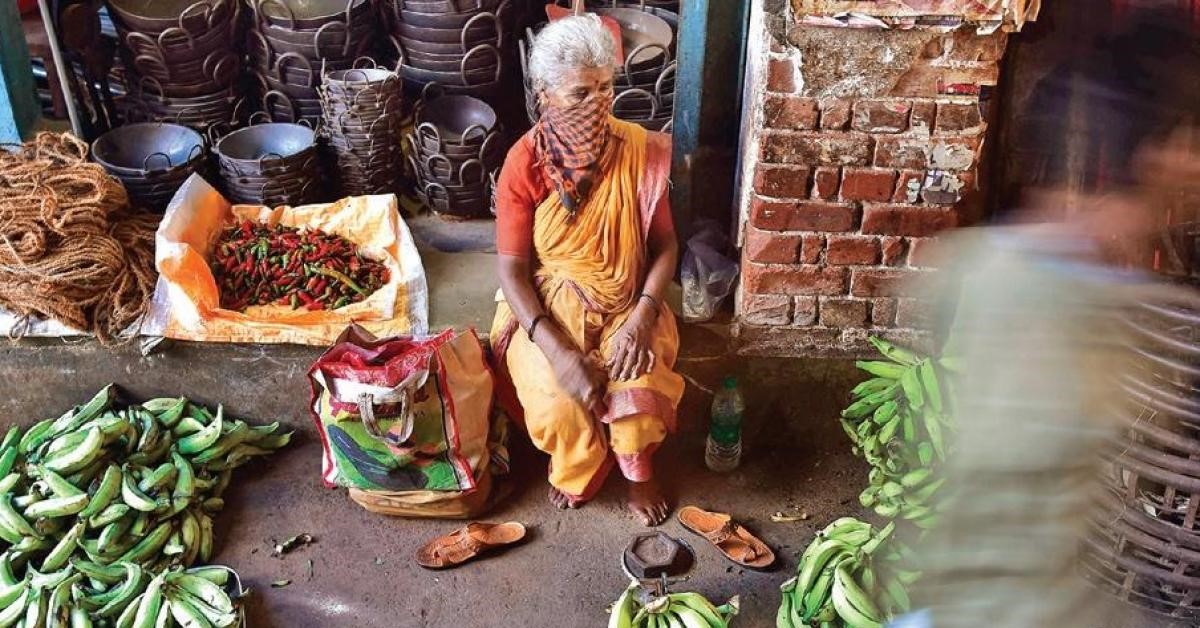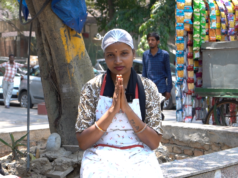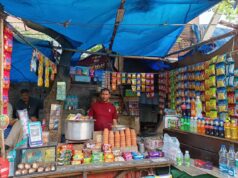With no luxury of working from home and maintaining social distance, street vendors have been fighting for ‘atma-nirbharta’ during the extended lockdown period. The blows of the pandemic have silenced the active hubs of commerce and urban conviviality, and the gender disparities have sharpened. Women across the unorganized sector, be it street vendors or daily wagers or domestic workers, are particularly vulnerable during the lockdowns imposed due to the COVID 19 pandemic.
Centre for Civil Society conducted its second chapter of State Community Conversations with Women Street Vendors based in Rajasthan through video conferencing. “Customers have shunned the streets and we have been left struggling to make ends meet”, says Machi Devi, a local vendor from Jaipur. Her lockdown struggle was corroborated by the voices of 10 other women street hawkers from Rajasthan, whose stories were rife with complaints and helplessness. Most of them have exhausted their savings and have been grappling with the burden of household chores, sexual harassment on the streets, lack of safety measures, and police brutality.
During our conversation with the stakeholders, many women cited the frequent eviction drives by Urban Local Bodies as a deterrent to pursuing their livelihoods. “They came at the break of day, took my weighing scales and cart, and I had to run to the police station thrice, that week. I was tossed around with disregard!”, Sunita Singh shares about the confiscation of her goods.
Authorities often seize their products, and these women have to keep visiting the baton-wielding police personnel and paying heavy fines to procure their belongings. Such incidents have increased during the extended lockdown, with numerous encounters of harassment and brutality by the police and civic authorities occurring off the books. Women street vendors are vulnerable to extortion as well, by local police and municipal authorities. Most of these cases go unreported. “Streets aren’t safe places for women! Men clad in police uniforms abuse us, harass us, dominate us. I have two children.”, says Rani Mali, a vegetable vendor from Udaipur, almost breaking into tears, “I have indoctrinated both my children to be their strongest version, to survive on the streets. There are all kinds of people on the street and one has to exercise utmost caution while vending, especially as a woman in isolated areas.”
On the other end of the spectrum are iron ladies like Lakshmi, who set up their mandis at the Pandit Ji ka Chouraha in Hasanpura. They have insulated themselves from the cycle of misery and harassment. “Nobody raises their voice with me. In fact, Nagar Nigam authorities do not dare to question me because of the power I wield. By joining hands together with all my sisters in the market, we can keep the authorities at bay.”
Many of these street vendors have resorted to negative coping strategies such as the distressed sale of assets and loans from moneylenders at very high-interest rates. Vicious debt traps have forced some of them to even beg for food. The apathy and lack of sensitivity displayed by the lenders while dealing with the vendors, who are just able to stay afloat in these challenging times, is appalling.
The most significant conclusion reached after the interaction included the proper implementation of the Street Vendors Act (2014). The Act promotes the regulation of street vending as a livelihood opportunity for vendors by designating vending areas and by statutorily providing for the registration of vendors for access to protection and social security benefits. Also, the licensing of street vendors is imperative to ensure that the livelihoods remain secured.
Without effective implementation and percolation of the myriad of policies and legislations on paper, the constitutional promise of social justice and equality remains out of reach.
“We can barely afford our meals; education is a luxury for our household,” laments Ranu Salvi, a Town Vending Committee member in Rajasthan. “Our children’s education has been jeopardized. Last year, I made my daughter complete her 7th grade with every penny I had on me, but this year it seems like a herculean task to fund her online education, especially since private schools have not offered any rebate in the wake of the pandemic.”
Another issue that surfaced amongst the other woes was the SVANidhi Government Scheme, which the participants commonly referred to as the ‘10000 rupees’ scheme. SVANidhi aims at facilitating working capital loans at a subsidized rate of interest, incentivizing regular repayment of the loan, and rewarding digital transactions. However, despite reasonable efforts undertaken by the Government, the actual benefits of the relief schemes such as the SVANidhi Scheme under the Act are not accessible to the majority of informal workers. For this scheme launched in the wake of the COVID 19 pandemic, the Centre has earmarked a stimulus package of Rs. 5,000 crore for nearly 50 lakh vendors. However, present times have called for the Government to strengthen the implementation of the scheme.
After listening to different representatives across Rajasthan, the most significant course of action is the opening of markets with proper safety and social distance measures need to be a priority.
In addition, there is an urgent need to generate work, stop retrenchment, ensure wage security and provide the access to regulatory tools so that workers, especially women can recover themselves from the impact of the pandemic.
Read more: Women of Janpath
Post Disclaimer
The opinions expressed in this essay are those of the authors. They do not purport to reflect the opinions or views of CCS.






